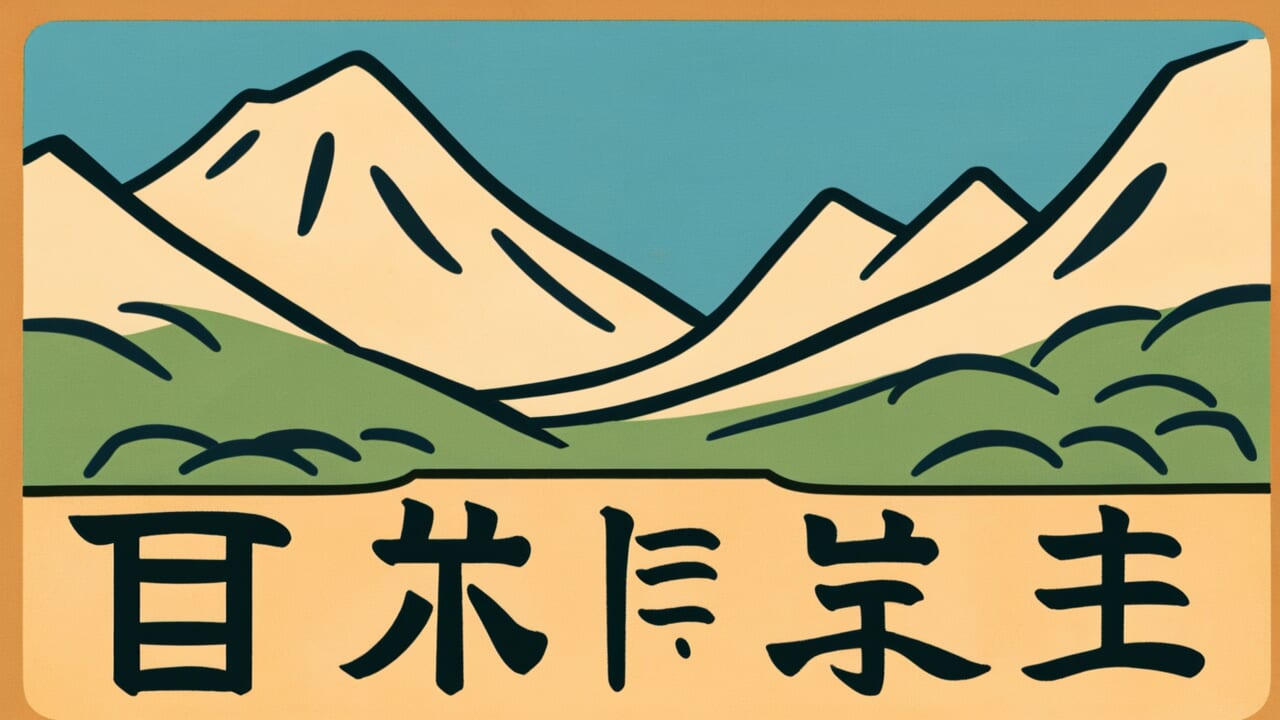How to Read “Death is sometimes heavier than Mount Tai, sometimes lighter than a feather”
Shi wa aruiwa taizan yori omoku aruiwa kōmō yori karushi
Meaning of “Death is sometimes heavier than Mount Tai, sometimes lighter than a feather”
This proverb means that some deaths carry great significance while others are trivial. All deaths may look equal, but their value differs greatly depending on the reason and purpose behind them.
A death for a noble cause is as heavy and precious as Mount Tai. On the other hand, a meaningless death or one for base purposes is as light and worthless as a feather.
This proverb isn’t really about death itself. It’s about how you live your life and what you use your life for. Deaths for noble purposes are considered meaningful.
These purposes include standing firm in your beliefs, protecting loved ones, or completing work that will benefit future generations. Today, people use this saying not just for literal death but also to express the weight of life choices and sacrifices.
Origin and Etymology
This proverb comes from the words of Sima Qian, a historian from China’s Former Han Dynasty. Sima Qian was working on compiling the historical work “Records of the Grand Historian” to fulfill his father’s dying wish.
However, he angered the emperor over an incident and was forced to choose between death or castration. In a situation where death would normally be the honorable choice, he accepted the humiliating punishment of castration.
He explained his reasoning in a letter to a friend using these very words.
Mount Tai is one of China’s Five Great Mountains and has been considered sacred since ancient times. It represents something heavy and substantial. Hongmao refers to the feathers of a large bird, so light they float on the wind.
Sima Qian believed that simply dying would be as light and meaningless as a feather. But if he could survive to complete the Records, his eventual death would carry significance as heavy as Mount Tai.
This saying asks not about the value of death itself, but what you use your life for. It contains a profound insight: depending on your purpose in living and reason for dying, the same single life can vary in weight as much as heaven and earth.
Usage Examples
- He sacrificed everything to complete his research. His life truly embodied “Death is sometimes heavier than Mount Tai, sometimes lighter than a feather.”
- Rather than living aimlessly, I want to live a meaningful life with the words “Death is sometimes heavier than Mount Tai, sometimes lighter than a feather” in my heart.
Universal Wisdom
This proverb has been passed down for thousands of years because humans have always questioned the meaning of life. Everyone wonders at some point: Does my life have value? How should I use this life?
Humans are strange creatures. Other animals live by survival instinct, but only humans seek reasons to live. Simply being alive isn’t enough. We want to do something meaningful, help someone, leave something for future generations.
This desire might be what makes us truly human.
At the same time, this proverb reflects human fears. The fear of dying meaninglessly, being forgotten, accomplishing nothing. That’s why people desperately try to give their lives weight.
They set big goals, face difficulties, and sometimes even risk their lives.
But there’s a deep contradiction here. Who decides the weight of a death? The person themselves, or future generations? History is written by victors, and evaluations change with time.
Still, people try to find their own answers. This eternal question might be the very essence of human existence.
When AI Hears This
Death as a physical event is the same for everyone. The heart stops, brain activity ceases. But from an information theory perspective, the “weight” of death is actually determined by the quantity and quality of information the person held.
For example, imagine a scientist dies just before making a groundbreaking discovery. The knowledge that existed only in their mind is lost forever. Information theory calls this “increased information entropy.”
In other words, the disorder of the entire world has increased. Conversely, when someone without special knowledge or influence dies, the change in information remaining in the social system is small. This is the true nature of the “difference in weight.”
What’s more interesting is that the same death can have different weights depending on the observer. A dictator’s death might be “light” to people who suffered under oppression, but “heavy” to those who benefited from that system.
This resembles the observer effect in quantum mechanics. Only after passing through the filter of the observer’s state and values does the information of death’s weight become determined.
In other words, this proverb identified over 2,000 years ago the essence of information theory: that no “objective weight” exists, and all value is determined by the context of the information receiver.
Lessons for Today
What this proverb teaches modern people is that life’s quality isn’t determined by its length, but by how you live it. Do you spend each day casually, or do you live with your own purpose?
That choice determines the weight of your life.
What matters isn’t following value standards others set for you. Success and fame that society recognizes aren’t the only things that give life weight. What you yourself truly value, what you can seriously commit to for someone else—that’s what gives your life meaning.
In modern society, we easily get swept up in immediate pleasures and calculations of gain and loss. But sometimes stop and think. Are my current choices really serving what’s truly important?
Even small things are fine. Spending time with family, reaching out to someone in trouble, honing your skills to help others. Each of these choices adds weight to your life.
How you use your life is for you to decide. Live a life without regrets, a life with meaning.



Comments